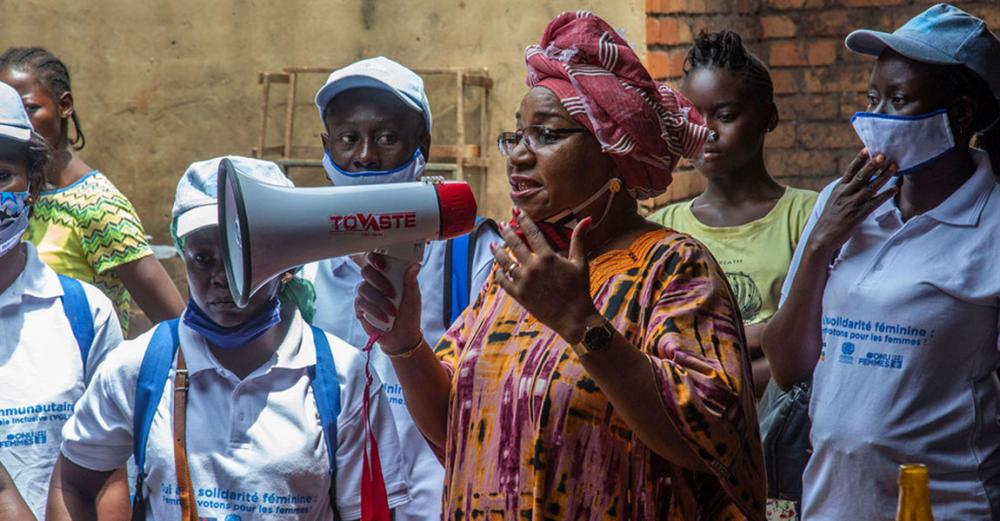Just Earth News | @justearthnews | 11 Oct 2020, 08:17 am Print

New York: Armed conflict has a disproportionate impact on women and girls – a key reason why women’s “full, equal and meaningful participation” in UN peacekeeping is such a priority, the Secretary-General said on Thursday.
At a virtual roundtable discussion on Women, Peace and Security (WPS) in peacekeeping, António Guterres drew attention to “landmark” Security Council Resolution 1325, which he called “foundational” to international peace.
Noting that October marks the 20th anniversary of the “ground-breaking” resolution, he explained that “it underscored the link between gender inequality and fragility, and between women’s security and international security”.
“Since then, the United Nations has worked relentlessly to advance the women, peace and security agenda”, upheld the top UN Official.
Women ‘under siege’
Although women have driven public health messaging throughout the COVID-19 pandemic, Mr. Guterres pointed out that they are “under siege”, bearing the bulk of the care and economic burden in many societies, while also facing “an alarming surge of violence in the home”.
And in conflict situations, while women often broker peace in communities, they continue to be sidelined at national and international levels.
Through the course of 2018, women constituted only 13 per cent of negotiators, three per cent of those involved in mediation, and just four per cent of signatories, the Secretary-General said, while “women continue to have to fight for their voices to be heard, despite the mountain of evidence on the correlation between women’s participation and the sustainability of peace”.
On a personal note
Before female leaders from Central African Republic (CAR), Cyprus, Sudan and Mali addressed the meeting, Mr. Guterres shared his own experiences in each of the countries, where he witnessed “the central role of women in alleviating suffering and forging peace”.
“Darfuri women have consistently advocated and worked for peace and security and in the on-going national political transition”, he highlighted, calling women signatories in recent Juba peace talks “a notable achievement”.
And for the first time in the history of CAR, he noted that women participated in the Khartoum peace talks, with one woman signing the peace agreement last year.
In Mali, he continued, women are playing key political roles in the current transition and women were on both sides of the peace table during negotiations in Cyprus, from 2015 to 2017.
Yet, political setbacks, underinvestment in women’s organizations and the entrenched mindsets and dominance of men, slows down women’s progress, the UN chief detailed, spelling out: “This must change”.
“Gender equality is a question of power”, he upheld. “We need a radical shift to reframe and redistribute the way power is held and exercised”.
Action call
The UN official made a rallying call to governments, the UN system, regional and civil society organizations, among others, to “take bold actions” to fully implement the WPS agenda.
We all must "adopt feminist approaches to accelerate women’s full, equal and meaningful participation”, he stressed, explaining that to build a peaceful and equal future, women’s leadership must be transformed from a cause, into “a norm”.
- Viral Irish food bank photo sparks shocking racist attacks on Indians
- Caught on camera: Two foreigners assaulted in Israel in an alleged racial attack
- Pakistan: Parents heartbroken after court sides with man accused of kidnapping minor Christian girl
- Pakistan: Trafficked 35 years ago, Bangladesh-born woman approaches court against FIA for offloading her from flight!
- Hindu tea worker found bound and bloodied in Bangladesh garden during general elections; investigation underway





-1763561110.jpg)
